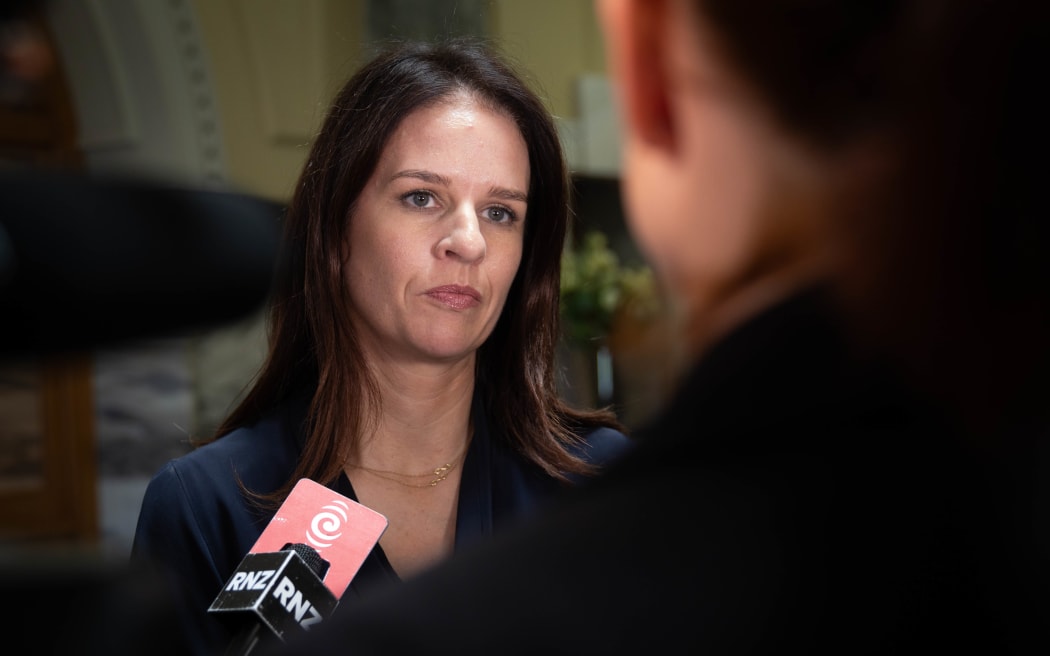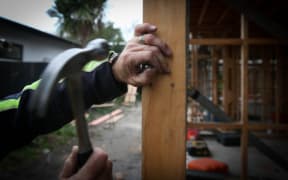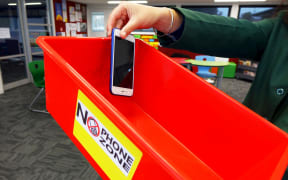
Despite low rates in mainstream schools amongst Māori, the results are opposite in kura kaupapa, Education Minister Erica Stanford says. Photo: RNZ / Angus Dreaver
Kura kaupapa have been using structured literacy successfully for a long time, Minister of Education Erica Stanford says as she pushes the method for all schools.
The government said $67 million would go towards the structured literacy approach which uses sounds and phonics to understand words.
The pre-budget announcement comes after the government this week announced its six education priorities.
Despite low literacy rates in mainstream schools amongst Māori, the results were the complete opposite in kura kaupapa, Stanford said.
"It is not good enough that our tamariki Māori are at the bottom of the statistics when it comes to reading and writing but we know from kura kaupapa, because they've been using structured literacy for a very long time, very successfully ... so yes we have a lot to learn from kura kaupapa."
She said she had a good discussion with Te Rūnanga Nui o ngā Kura Kaupapa Māori on Thursday about its success rates and what extra resources it may need.
Te Rūnanga Nui chief executive Hohepa Campbell said it was heartening that the government recognised the need to support kura kaupapa Māori.
"Kei te mārama rawa te kāwanatanga kei te eke ngā tamariki i roto i ngā kura kaupapa Māori, ana he haepapa nui tō rātau ki te tiaki i te kaupapa.
"The government understands that children in kura kaupapa Māori are succeeding and that they have a duty to support us."
The government and the ministry were well aware of the underfunding that kura kaupapa faced, Campbell said.
"Ko te hiahia a ngā kura kaupapa Māori me te Rūnanga Nui kia whakatūria e te kāwanatanga he ara kaupapa Māori. Ko tēnei ara he ara i waho i te pūnaha whakahaere kura mō ngā kura auraki.
"What kura kaupapa Māori and the Rūnanga Nui want is for the government to set up a kaupapa Māori pathway. This pathway would be parallel but outside of the education system for mainstream schools."
This is why the rūnanga lodged its claim with the Waitangi Tribunal, Campbell said.
Kura kaupapa operated differently from mainstream schools, he said.
"Ehara i te mea ko te pānui, ko te tuhituhi, ko te aromatawai, ko te pangarau te kaupapa nui, ko te mahi a te kaiako me ngā mātua o te kura kaupapa Māori he hiki i te mana o te tamaiti, he tiaki i te mauri kia ora ai ngā tamariki.
"Reading, writing, exams, maths are not the most important thing [for kura], what the teachers and whānau of kura kaupapa Māori do is lift the mana and protect the mauri of our children."
'Wait and see if it works'
Kura kaupapa principal Cathy Dewes said she would reserve judgement on whether structural learning would help improve reading and writing for Māori students in mainstream schools.
Dewes believed the minister is genuine in her approach to help education rates amongst Māori.
"A real desire to raise educational achievement levels for Māori children in all schools in mainstream, I think that's great that there is that focus on the Māori kids. We'll wait and see if it works," Dewes said.
She was pleased with how conversations went with Stanford and how well kura kaupapa education rates were going.
"She very quickly acknowledged at the very beginning of the meeting that obviously whatever we do in terms of structured literacy, it was working for our kids, because when she looked at our results at whare kura level, in terms of NCEA achievements, she agreed with what we were saying about, we do it right in years one to eight because once they get to whare kura, most of our kids are high achievers in NCEA level 1, level 2, level 3," Dewes said.
She emphasised Māori was an oral language which was taught through encouraging conversations about topics that were relevant to learners.
She said mainstream schools tended to overlook the importance of maintaining connection to te ao Māori for students.
"Which more often than not relate to their personal experiences, their whānau, their whakapapa, their marae, their sport and the other experiences outside the classroom which they really enjoy and which they have an emotional attachment to," Dewes said.







